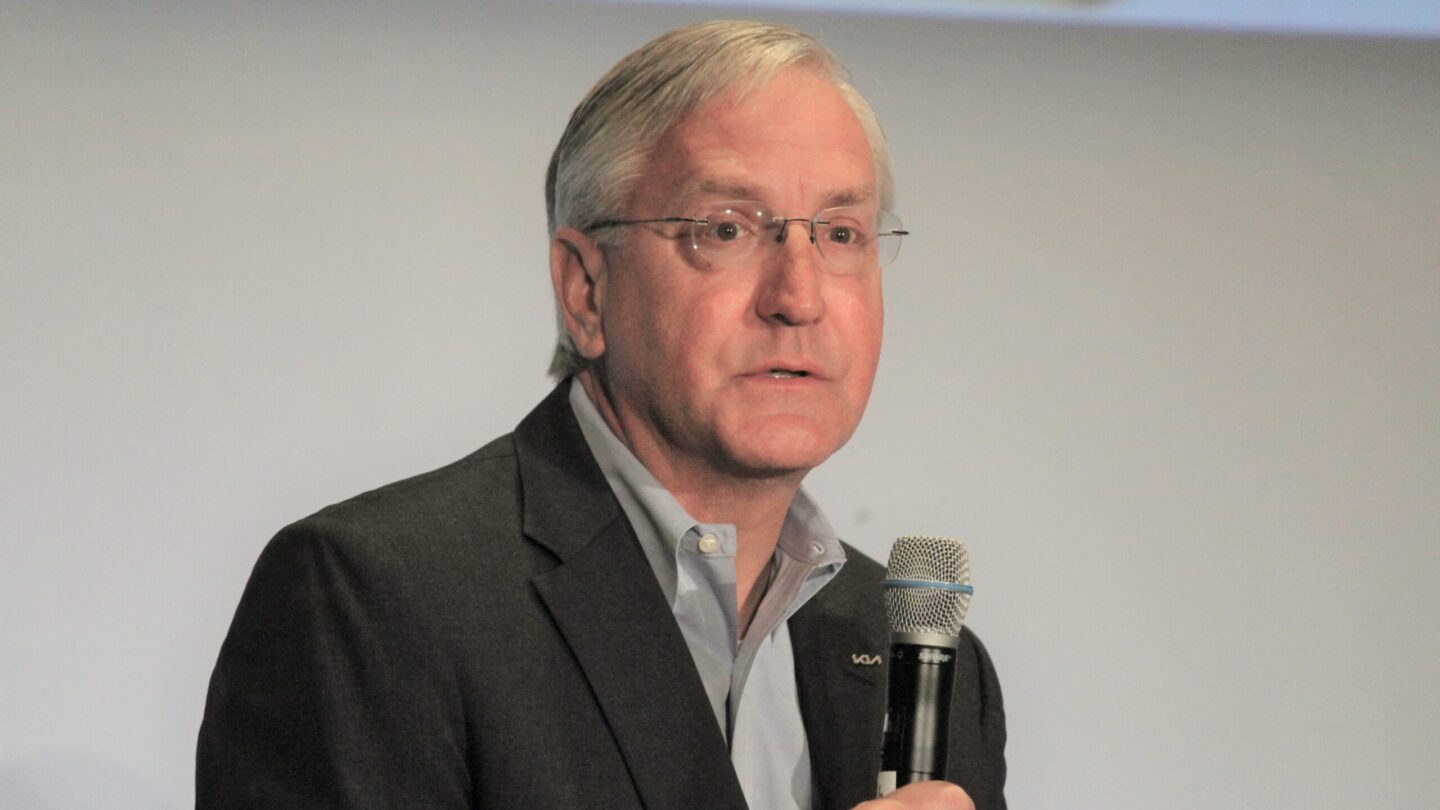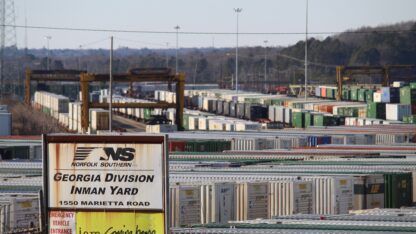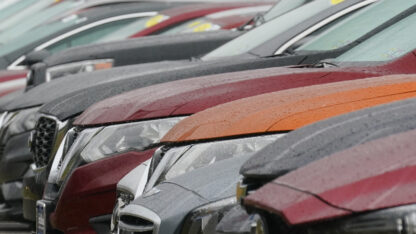It’s been a busy start to the year for the Kia production factory in West Point, Georgia.
In the midst of supply chain issues and labor shortages, the plant introduced a new president and CEO.
Stuart Countess spoke to WABE’s “All Things Considered” Tuesday at the Georgia Chamber’s “Future of Georgia Summit” at Georgia Tech.
The conversation started around the 2023 Kia Sportage subcompact SUV, which, just this month, became the fourth vehicle model produced here in Georgia.
“It provides us with some flexibility to adjust to whatever the consumer demand is. If they want large SUVs, mid-size, smaller SUVs, it just allows us to flex very easily and keep the entire plant at maximum capacity,” said Countess.
Kia had to halt production multiple times in 2021 because of a shortage of semiconductor chips. But overall, production was at record levels last year, according to Countess. With more than 350,000 vehicles produced at the facility each year, he notes that the West Point plant makes more than half of all Kia vehicles sold in the U.S.
But it hasn’t been business-as-usual over the last year. Countess says in the past, production schedules were planned well in advance. Now, he’s forced to evaluate the schedule on a weekly — and sometimes daily basis.
“That’s a little bit of an abnormal process, but we’ve found a way, at least in our facility, to manage that,” said Countess. “But I think more importantly, it’s how we communicate it to our team members so that they can understand why we’re having to make these shifts in production schedules.”









